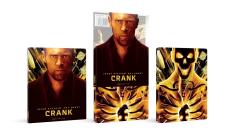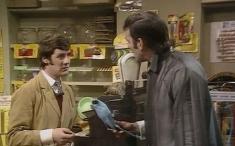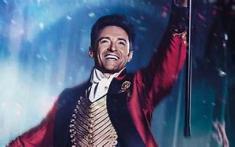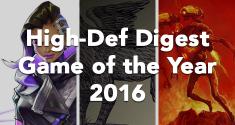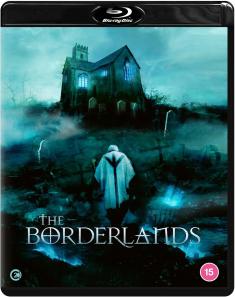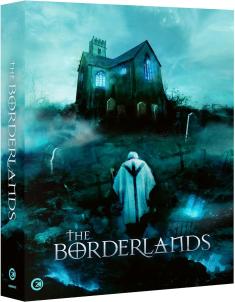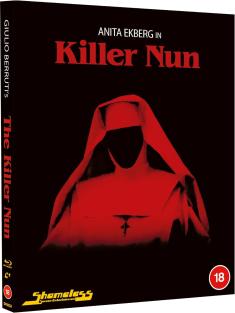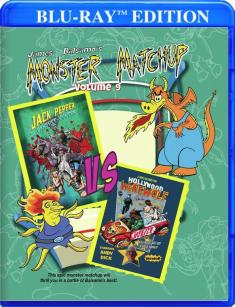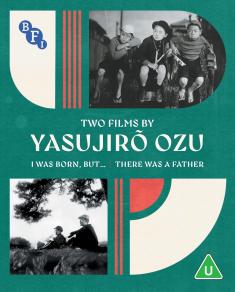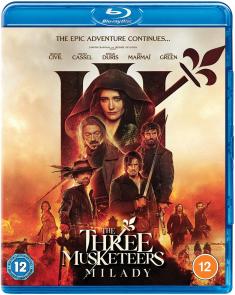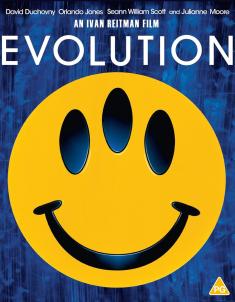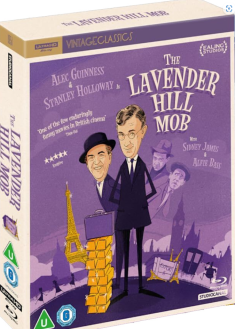Payback: Straight Up - The Director's Cut
Overview -Val Resnick and Porter, two small time bandits, hit a Chinese gang together and manage to get $140,000. But Val Resnick needs 130 grand alone to buy himself back into his syndication. So, Val turns on Porter together with Porter's wife Lynn, who kills him with two shots in the back. But Porter survives and half a year later, he is back, seeking his share of $70,000. When he finally finds Val, Porter quickly learns that he has to go much further up the ladder in order to get his money from the guys who have it: The syndication. Working alone can't be realized any more, so Porter teams up with his flame and previous boss Rosie, a very exclusive prostitute. Together, they now start playing the teams against each other.
Storyline: Our Reviewer's Take
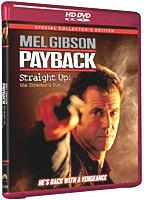
The behind-the-scenes story of the 1999 Mel Gibson film 'Payback' is by now a familiar one to industry watchers. After the studio deemed first-time director Brian Helgeland's uncompromising vision of this gritty crime noir too intimidating for audiences, he was booted from the project and replaced by the film's production designer, John Myhre. While Helgeland was still credited on-screen as director, Myhre ended up re-shooting more than 30% of the film (including an entirely different third act), drastically altering the story, look and tone of Helgeland's original cut.
Enter the high definition release of 'Payback - Straight Up: The Director's Cut,' where Helgeland has finally been allowed to present his version of the story without studio interference. While a similar string of events led to two below-average versions of the most recent 'Exorcist' film, the difference here is that both versions of 'Payback' are of equally high quality, appealing to different kinds of audiences with the same pulpy examination of hardened principle.
'Payback' is the story of a man named Porter (Mel Gibson) and his partner Val (Gregg Henry), two criminals who rob a Chinese gang and walk away with $140,000. Following the heist, Porter is betrayed by both Val and his own wife (Deborah Unger), who shoots him before taking off with his cash and his former partner. Defying all odds, Porter lives and returns to get the $70,000 Val owes him. Working his way up through thugs, dirty cops, cocky captains, and the heads of The Syndicate (the city's local crime organization), Porter's stubborn determination pushes him to exact revenge and reclaim what's his.
I was already a huge fan of the theatrical version of 'Payback,' and came to this cut prepared to denounce it, but after watching it, my only real conclusion is that a heated debate is likely to rage among fans for years over which version is superior. It'll be the American equivalent of Brits arguing over whether 'Snatch' or 'Layer Cake' is the better film. The theatrical version of 'Payback' is a witty, tongue-in-cheek noir that showcases its paperback roots with a grin -- a dark comedy through and through, it's not meant to strike its audience as a story of real people. On the other hand, this director's cut of 'Payback' is dry, masochistic, and much grittier. Quirky characters remain, but the thrust of the film is focused on the blank slate that is Porter, leaving the audience to mull over whether his intentions justify his actions. Where the theatrical cut was a fun and bloody romp through a wild criminal underworld, Helgeland's version is a rough sucker punch into a city's seedy underbelly.
Almost everything about this new cut is dramatically different. The tone, soundtrack, and even the characters have been completely changed. The opening has been stripped of its playfulness, the narration is gone, the violence is more physical, and Kris Kristofferson is nowhere to be seen. The boss of The Syndicate is now a faceless woman, the music is heavy and depressing, and the pacing is more deliberate. The director's cut feels longer (even though it's almost fifteen minutes shorter) because it patiently follows Porter through his carefully orchestrated series of double crosses. By comparison, the theatrical version was a quicker, more rapid-fire climb up a ladder that brought laughs and claps in the theater when I first saw it.
Helgeland's version made me wince at times -- just try to make it through the scene in the where Porter first returns to his apartment to confront his wife. Regardless of her actions, the domestic abuse that Porter doles out gave me pause and made me sit back in my seat. Mel Gibson's Porter is certainly not as likeable a character as he was in the theatrical cut and I definitely found myself rooting for him less than I had before. However, it was a more effective examination of criminal motivations and the extremes people are willing to go to get what they want. Thematically, the director's cut is a dangerous beast, lurking in the corners and striking when it's most effective. The cinematography is changed as well -- the blues and grays of the bleached theatrical cut have been restored to a more natural palette.
Either way, the script is smart and the performances are top notch. Gibson, Gregg, and Unger are all convincingly immoral and Gregg adds a particular flavor of nastiness to his portrayal of Val. Gibson reigns in the smiles and the personality, choosing instead to emote through silence and shrugs. The supporting cast is a treat as well -- Lucy Liu plays a Chinese S&M gangster named Pearl, David Paymer plays a squirrelly underling named Stegman, and Bill Duke and Jack Conley play slimy cops out to keep everyone in their back pockets.
Personally, I still prefer the theatrical version of 'Payback' over this director's cut, but I also place 'Snatch' slightly above 'Layer Cake.' I missed the narration, the silver blue palette, and the playful darkness of the theatrical version. However, I liked the heavier attitude, the restrained kinetics, and the disjointedness between Porter's intelligence and his thuggish brutality in the director's cut. No matter which way you lean, do yourself a favor and check out both cuts of the film. Aside from being a fascinating study of how simple changes can dramatically alter a story, both versions of 'Payback' are great films that make a nice addition to the modern crime noir genre.
Video Review

Presented in 1080p and encoded using the AVC MPEG-4 codec on this HD DVD, 'Payback - Straight Up: The Director's Cut' looks very good despite its grittiness and grime. While the Blu-ray edition is encoded using the MPEG-2 codec, both the HD DVD and Blu-ray editions are nearly identical and impress regardless of your favorite format. From afar, I felt like the HD DVD picture was slightly warmer, while the Blu-ray seemed a bit sharper, but in a series of side by side comparisons, I couldn't detect a definitive difference -- it's just an overall impression, so take that as it is.
Colors are a much bigger deal in this version of the film, and primary tones really pop in daytime shots. At night, blues rule the shadows without a hitch: there's no crush, artifacting, or source noise to be seen. Right up front, check out the flashback where Val betrays Porter -- take in the sheen of the cherry red car, the pattern on Val's shirt, the blue of Porter's eyes, and the sharp contrast present in the picture. When Porter ends up laying in his own blood, take a look at the convincing wetness of the pooled blood under his body. It seems surprisingly three dimensional for a film so steeped in a washed out, gritty lighting scheme.
Black levels are rich, fleshtones are naturalistic, and the moderate grain adds depth without being distracting. Cityscapes are impressive, teeming with building details stretching into the distance, cars scattered about the streets, and pedestrians whose faces are as clear as those of the main characters. For an older film, this transfer holds up rather well, and its fine object details are its most impressive asset. For a sample, take a look at Porter's first visit to Stegman's, any scene in Maria Bello's apartment, or Pearl's first visit to Val's room. This last scene in particular is a showcase of Liu's crisply detailed boa, Gregg's insanely patterned robe, and a corset with tiny specks of diamond. Skip to Porter's endgame at the train station -- the texture detail on the concrete is sharp, bullets send small debris flying from the kiosk, and even the print on the newspaper is easily distinguishable. Finally, head to moment when Porter retrieves his gun from the dirty cops outside of The Syndicate building and just pause the film a few times. The detail on each actor's face is phenomenal -- cracks in the skin, wrinkled brows, stubble, and every imperfection grounds each performer in the gritty world they inhabit. This high definition presentation really enhances the starkness of the cinematography, working hand in hand to make the city feel dirtier.
As usual, there are a few things that keep the transfer from boasting a perfect score. While it's likely due to the film's noir roots, shadow delineation is only average, with details instantly disappearing into every dark corner. Infrequent instances of murky contrast levels hinder some shots from popping as much as the rest of the film (for example, the close-ups near the end of the kitchen talk between Porter and his wife after their fight). There are also a smattering of shots that drift into softness -- watch for examples of this at the end of the Porter's first interrogation of Stegman and when Porter points the gun at Pearl after killing her gang. To top off my nitpicks, a few print flecks are scattered throughout the picture and are occasionally heavier in some shots.
Gritty flicks like this seem to be a point of picture quality contention, and I'll admit that it is harder to spot the marvels of a transfer in a film like this. But if you fall into this group of people, just take a look at the standard DVD edition of this film on a large screen and compare it to this high-def transfer -- I think you'll agree that the detail, the black levels, and the color vibrance alone earn this transfer a high score.
Audio Review

The Dolby Digital-Plus 5.1 track included in this HD DVD edition gets the slight edge over the Dolby Digital 5.1 on its Blu-ray counterpart, although to be honest, I could barely distinguish a difference, and only the most hardened audiophiles will find something to complain about in the standard 5.1 track on the Blu-ray edition.
With that being said, I was disappointed by the vacuum left in the wake of the theatrical edition. That cut was full of bassy music that added a welcome sense of momentum. In this director's cut, the soundfield is much emptier and the rear channels are silent a lot of the time. This isn't an issue to be attributed to the compostion of the music, but rather a stylistic directorial decision that didn't sit right with me. There are still moments that fill the speakers -- the scene I mentioned where Porter interrogates Stegman for the first time being a nice example. The street has a genuine ambiance, school children play in the distance, a light breeze moves through the air, and Stegman's whiny voice trembles naturally. But for every moment like this one, there are a dozen set in a silent apartment as Gibson talks with another character. Even scenes in the bustling city seem largely absent of traffic and pedestrian noise. The theatrical version felt much more alive in its sound design.
Dynamic range is impressive and Gibson's gruff voice makes full use of the subwoofer, filling the room with presence every time he speaks. Dialogue is crisp and clean, the sound design is well prioritized, and sound effects, for the most part, are punchy and direct. However, I was disappointed in newer scenes with gunfire. Similar scenes in the theatrical cut explode with a cacophony of booms from each gun. Gunshots in these resurrected scenes sounded flatter and didn't startle me nearly as much (especially in the third act at the train station).
Finally, I have to mention the soundtrack. As much as I enjoyed this new cut of the film, I absolutely loathed the sparseness of the new score. There is so much dead air that I found myself bored in identically edited scenes that I had loved in the theatrical version. The director's cut is so silent that it feels unfinished and incomplete -- again, an issue I attribute to the director's guidance rather than the composition of the music itself. Worst of all, the prioritization of the music in the sound design is technically below average -- bass hits are soft, treble tones are muffled, and the entire soundtrack feels lazy from beginning to end because the music is always hidden too far behind other layers in the sound design. My only minor complaint with the composition itself was the absence of more jazzy riffs similar to what populated the theatrical score. While similar pieces appear in the director's cut, they disappear far too quickly.
Special Features

Normally the number of extras present on this disc would warrant a three star rating. However, the supplements on 'Payback - Straight Up: The Director's Cut' are so thorough and candid that they're in a completely different class compared to the same sorts of extras on other releases. Every participant -- including Helgeland and Gibson -- is so seemingly honest in their explanation of the history of the film's disputes, that I was truly fascinated throughout.
First off, skip right to the goods and head for the feature titled "Same Story - Different Movie, Creating Payback: The Director's Cut." Presented in high-def and clocking in just shy of a half an hour, this documentary explores the fallouts, drama, and in-fighting that divorced Helgeland from 'Payback.' This was hands down one of the most intriguing behind-the-scenes explorations I've ever watched. Each participant is strikingly candid as they describe a situation that no one wanted, but which no one could avoid. Combined, the interviews describe the nature of the dispute and how each party handled Helgeland, the movie, and its eventual completion. While a dominant representative of the studio is oddly missing, Gibson, Helgeland, and the other participants are very thorough in their examination of what went wrong. Best of all, films clips and side by side comparisons tirelessly detail the differences between the two versions. Fans looking for angry screams from a belligerent director will be sorely disappointed. However, those looking for a thoughtful look at the down and dirty business considerations behind the making of a film will be entranced.
Next up is a documentary titled "Paybacks Are a Bitch" which has been divided into two segments -- the 28 minute "On Location in Chicago" and the 19 minute "On Set in LA". Both could have easily been edited into one piece, but I enjoyed seeing the separate differences between location and set shooting. These featurettes are also worth watching simply because they're more than an interesting look at the work that brought 'Payback' to the screen -- they continue to explore the two tones of the two versions of the film. Every compliment I threw at the "Same Story - Different Movie" documentary applies here as well and this is an excellent companion piece to that supplement.
Next hop over to "The Hunter - A Conversation with the Author Donald E. Westlake," a ten minute interview that seems out of place at first. Exploring the roots of crime novels and his own motivations for his original version of "Payback," Westlake bridges the gap between the behind-the-scenes documentaries and the story-centric commentary with Helgeland. He talks about tone and character, two things central to the disagreement between the director and the studio. While Westlake never takes much time discussing the drama behind the film's editing, he does provide a glimpse into what noir audiences respond to. While this is much drier than the other features, it was still interesting and unexpectedly relevant none the less.
Finally, check out the excellent director's commentary with Brian Helgeland. It appears first but I'd really recommend listening to this supplement last -- Helgeland doesn't spend too much time talking about the drama behind the scenes because that information is explored so deeply in the other features. Instead, he examines every detail of the story and tone of his cut of 'Payback,' his original intentions, and the reasoning behind every decision he made with this version of the film. He never veers into technical drudgery because he has too much to say about why he loves the film as he originally wanted to present it. Somewhat surprisingly, throughout he's very gracious to the theatrical cut of the film. While he disowns it in so many words, he never insults it or trashes the people who guided that version into being. He speaks highly of Gibson and describes him as being "caught between [the director] and the studio" on more than one occasion. Helgeland is a real class act, an engaging speaker, and an impressive professional who has come to a nice understanding of the events surrounding the shakeup on 'Payback.'
Unfortunately, I can't stop shaking my head when it comes to the one, gigantic hole in this release. While I'm sure it'll appear on high-def in the future, the absence of the theatrical cut of 'Payback' on a second disc is an enormous missed opportunity. Even a concurrent release of both versions would've been fine by me and I would've dropped the extra cash in a second just to compare the two in high-def.
Final Thoughts

In the end, whether you prefer this cut or the theatrical version, 'Payback - Straight Up: The Director's Cut' is a fascinating study of two visions of the same film. The video quality on this HD DVD disc is exactly what I hoped it would be, and the supplemental package is so thorough that I was as engaged watching the features as I was watching the film. The only disappointing aspect is underwhelming (although still technically solid) audio. But unless you're an audiophile, pay that no mind -- this HD DVD release should be an easy sell for 'Payback' fans, and even if you didn't like the film before, you should give it another chance in its new incarnation, as it's almost an entirely different movie.
